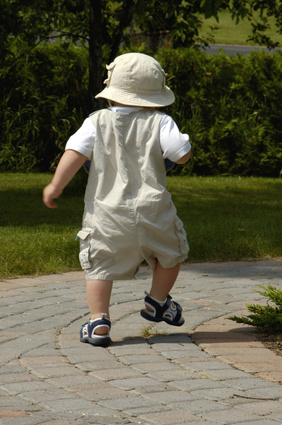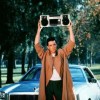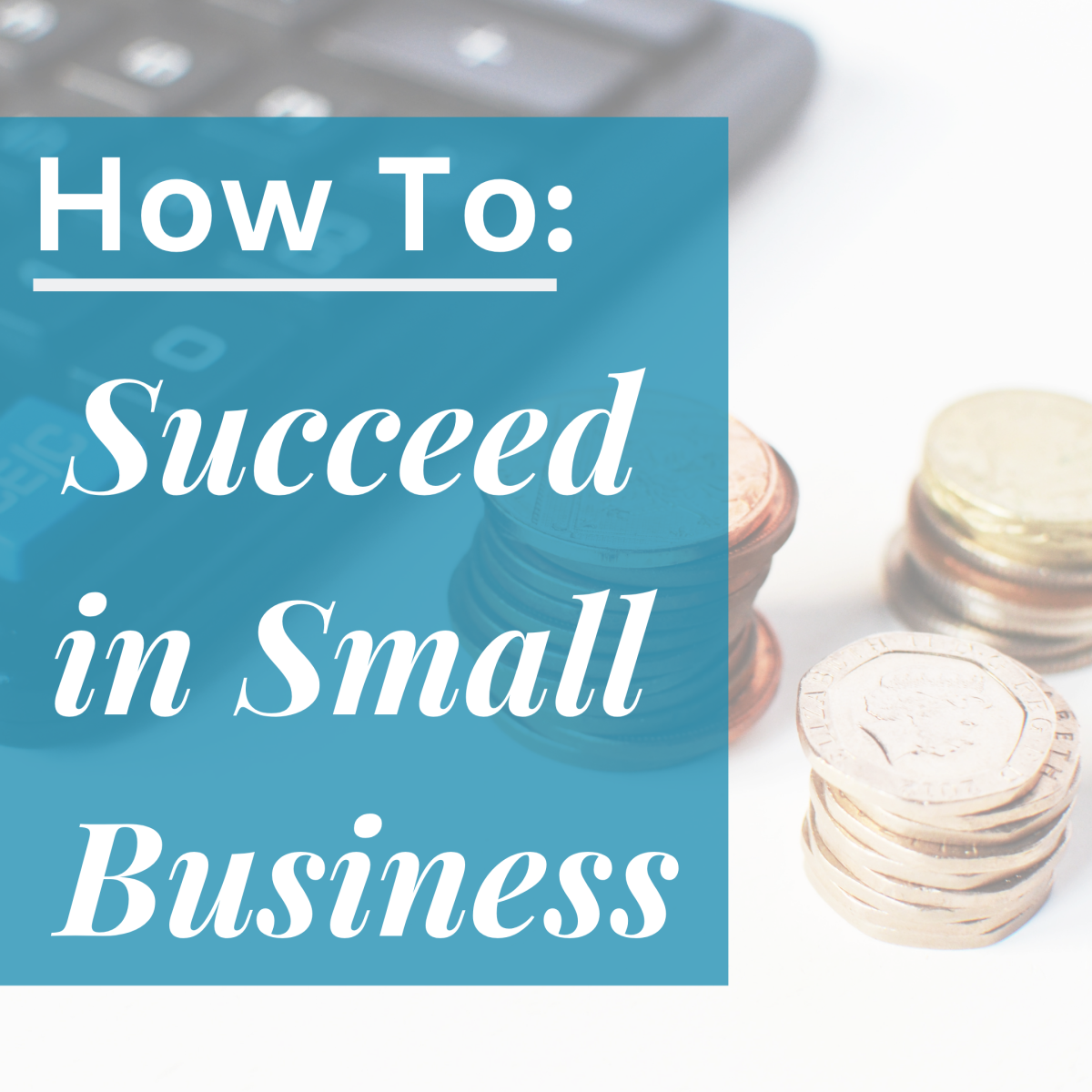The Toddler CEO: A Success Story

Every toddler knows instinctively what we as adults have forgotten. I have called this The Toddler Principle: The sooner you start failing, the sooner you can succeed. In other words, the only way to get from crawling to walking is to fall, get up, fall, get up (doing it better) and so on until you succeed and are able to get where you want to go faster and more efficiently.
When my daughter was very young and wanted to learn how to ride a bicycle, she picked a time when I was in the middle of a big project and so I was only able to help her in our long driveway for a few minutes. She was determined to learn and unknown to me, kept working at it. After a half hour or so she came bursting in the door crying: "Daddy come look!" She took me outside where she mounted the bike all by herself and rode down the driveway. I was flabbergasted as well as extremely proud and blurted out: "Sara, how did you do that?" Her answer was unlike anything I had ever heard and nothing like what I expected. She pointed at two green shrubs at either side of the driveway and said: "First I fell into that bush and then I fell into that bush." Her little face beamed up at me as if I would totally get her explanation--which I did. She knew from her toddler days that the quickest way to master a new skill was to be willing to fail at it as many times as it took to master it.
When you are learning to juggle three balls, one of the common difficulties is not throwing the 3rd ball because you are so worried about dropping the 2nd ball. Experts will tell you to concentrate on throwing the 3rd ball and forget about catching the 2nd ball at first. In other words, incorporate failure as a part of the process of learning to succeed.
My stepson is a gifted thinker and communicator and wanted to branch out into sports. He chose track and found himself excelling at the two hardest events--high hurdles and pole vaulting. I asked him how he came to choose those and he replied: "I was the only one not afraid to fall." Hearing those words reminded me of my daughter's experience and reinforced my "Toddler Principle." The closest distance between two points--a goal and success, is through a path of falling and getting up, of failing and learning and eventually succeeding.
Why do I use the toddler to teach us the secrets of success? A 3-year-old toddler's brain is twice as active as
an adult's brain forming over 1000 trillion connections. The toddler is a "supersponge" gaining experience at an incredible rate, mostly by making mistakes and learning from them. As an adult they "prune" the ones that are not meaningful or necessary. While adults may not be able to absorb as much as in their supersponge stage, the process is the same. Want to become a more qualified person, learn a new skill, create a business--harness the incredible Toddler Principle.
I have not failed. I've just found 10,000 ways that won't work. ~ Thomas Alva Edison
We often work harder not to fail than we do to win or succeed. If we put as much energy into trying as we do into "not failing" our lives would be a lot different. Taking the safe option every time leads to a habit of fighting for a negative goal instead of fighting for a positive one.
Consider the toddler. One of the characteristics of the toddler (much to the dismay of their parents) is a seeming disregard of fear. The toddler has not learned that failing is wrong or something to be feared. On the contrary, when the toddler wants to do something, to reach a toy, or anything interesting or to move toward a parent, dog or another child, they let nothing deter them from trying. Rick Warren, the author of the largest selling hardback in human history, The Purpose Driven Life, describes many whose lives are on hold: We hate to admit we have fears because we think they're a sign of weakness. But fear is a sign of humanity. Only fools are not afraid. You've heard it said, "Courage is not the absence of fear, it's moving ahead in spite of our fears."
Do one thing every day that scares you. ~ Eleanor Roosevelt
When did we learn that trying and failing was wrong or something to be feared? Was it pain? Fear of rejection? Was it embarrassment? Making mistakes? Was it shame? Many adults who were fearless as toddlers are cautious and timid when it comes to social situations, career choices, or romantic relationships. Somewhere in your past there was something that bothered you enough that your mind always goes to that dark place of self doubt and convinces you not to try.
When my oldest son was two he was fearless. Whatever he saw us do he felt he could do it too--mow the lawn, plug in and fill appliances, chase the cat with his own "Comet" version of flea powder all over the house. As a responsible parent, I had to tell him about the dangers of electricity and lawn equipment but I tried to do it in a way that didn't make him ashamed or afraid. Unfortunately the fear of many parents comes through as "Don't EVER do that again, you could be KILLED!" or "You should be ASHAMED of what you did!" What is almost worst is the subtle things that parents or peers say: "You don't have the grades for that college." or "You don't want to pursue that career you aren't suited for it." At some point in this constant scolding or shaming or belittling, we learn to see ourselves as incapable and think we will look bad or be laughed at if we try something hard or new.
Many great ideas have been lost because people who had them could not stand being laughed at. ~ Anonymous
Apply the Toddler Principle to regain our "can do" attitude. You would think that being delivered from slavery in Egypt and walking on dry land between walls of water through the Red Sea would give anyone confidence, but when it was time for the children of Israel to enter their promised land, it was a big problem. They sent in twelve spies. Two of them, Joshua and Caleb, said "Let's go, we can handle those guys!" while the others said "We were like grasshoppers in their sight." The problem was not how their enemies viewed them but how they viewed themselves. They felt like grasshoppers and assumed the enemies saw them the same way. The truth is the enemy had heard about Egypt and the Red Sea and they were trembling in their boots. Because the group followed the negative attitude, forty years went by before they marched in, led by the only two remaining spies--guess who--Joshua and Caleb.
If your life is free from failure, you’re not taking enough risks. ~ Anonymous
What Would the Toddler Do?
Toddlers know how to ask for help. If you don't have the resources, take a lesson from the toddler--ever see one afraid to ask for help? Get people to invest in your project and get them involved. When others invest in something they will want to help you so don’t be afraid to ask. You don't know everything and it will kill you if you try to do everything yourself.
Toddlers break things into manageable steps. Trying to build your project all at once is too difficult and takes too much time. Doing it piece by piece with small steps will give you the confidence to tackle harder tasks.
Toddlers don't take failure personally. If I only get across this one concept in this article, I will have succeeded. It's not about you, it's about reaching the goal. Focus on learning from your failures, not on how you look doing it.
Toddlers never worry about their age. If you think that you are too young or too old to accomplish something difficult, watch a toddler. They don't know they are too young to do something until they are told so by adults. Even then that rarely stops them.
Toddlers don't worry about lack of experience--they are the most phenomenal experience acquiring machines in the world. They achieve bursts of learning and develop capabilities like no other time in their life starting with a bare minimum of experience. The amazing truth is that if you don't have enough experience to start a business, start one and you will have more valuable experience than you would gain in the workforce. Starting something yourself helps keep you from becoming the kind of person who always needs someone to tell them what to do.
Toddlers have no shortage of motivation. If you feel you lack the necessary motivation or perseverance to make it to your goal, watch a toddler keep at something until he achieves it. In fact, those toddlers who are helped with everything and given everything grow up to be entitled underachievers.
Toddlers rarely think they are not smart enough. If you feel you don't have the intelligence or enough knowledge to do the great thing, take a lesson from toddlers--they learn more by trying and failing than most adults learn through accepted institutional methods.
Toddlers aren't fazed by criticism. If people disparage your ideas and tell you they won't work, consider that toddlers start every endeavor with the field all to themselves--no one expects them to be able to do anything and when they do accomplish something the adults all crowd around and make a big deal out of it. The toddler principle tells us that there is no shame in failure so quit worrying about what others think. If you give it everything you've got, no one that matters, your family, real friends, your investors even your next employer--none of them will blame you if your business fails.
If at first you don't succeed, try, try again
Toddlers don't like to be told what to do. If you are just letting the idea that you are one of those who need someone to tell them what to do as an excuse, listen carefully. Take a chance, make some mistakes, do it now!
Toddlers don't fall back on things they already know. They don't know anything yet so it never stops them from trying something new. My youngest son was a whiz at math. It came easily to him and while others were struggling to memorize the flash cards, he would just figure it out the way he always had. Trouble was, as soon as the less gifted students memorized their math facts, they were zooming ahead of him. He learned that the try and fail process of memorization was superior to falling back on his familiar skills.
Toddlers are not bothered by not knowing what will happen. Is the unknown stopping you? Good. I'll save you some trouble--you'll fail. Probably right away. The good news is you will know more and fail less and pretty soon you will know that success will happen--not because someone told you but because you learned from your mistakes and became your own success model. If you still need a little push, research your project and write down the possible worst-case scenarios. Understanding is more powerful than fear.
The Benefits of Failure
1.You learn what not to do. Edison said that each time his filament failed it was just another one he could mark off his list to try. What is even more valuable, you can use what you learned on your earlier attempts to help you do it right the next time.
2. Each attempt is an opportunity for growth. The experience and knowledge you gain, even if it costs you time or money can far outweigh what you lose.
3. You did something. Dylan Thomas said that most men live lives of quiet desperation. I have to wonder if it is because of regret for not attempting anything toward a goal. The best way to reduce your fear and build confidence is to do the hard thing which is usually just to take some action.
4. It increases your odds of winning. Each failure brings you closer to your goal.
For of all sad words of tongue or pen, the saddest are these: "It might have been!" ~ John Greenleaf Whittier
There are few things sadder than missed opportunities.
How many people have you heard say "I could have bought this piece of
real estate for some amazingly low price a few years ago and I should
have." How many of us knew how cool Google was when we were first using
it, but the failure of other dot com companies made us decide not to
buy stock. How many people have you heard say "I could have been a
professional singer, athlete, successful business leader etc." and are
now mired in regret or envy because they were afraid to fail? William
Shakespeare penned the famous quote: There is a tide in the
affairs of men, when taken at (its peak) leads on to fortune, omitted,
all the voyages of their life is spent in shallows and miseries.
You don't understand. I coulda had class. I coulda been a contender. I coulda been somebody. ~ Marlon Brando "On the Waterfront."
Because
of your inexperience you will make a lot of mistakes which will give
you the experience you will need when you try it again. When you work
for someone else, you are rarely given the freedom to make mistakes, so
if you have an idea you want to develop, don't let inexperience stop
you. Sure, you'll probably fail, but even failure moves you closer to
your goal faster than sitting in a cubicle wishing you were doing
something else.
Hope for the best, but expect the worst. In
the worst case, it will at least be interesting. In the best case you
might get rich. ~ Paul Graham
- Be the Best or Die Laughing Trying
If your life is like the traffic signs in the picture and you feel you have no choices. Think again. The power to choose, even if it is only in how you feel about your situation, is one of the most... - Zuckerberg on 60 Minutes: the toddler CEO keeps his cool in the hot seat | VentureBeat
Dean is lead writer for GamesBeat at VentureBeat. He covers video games, security, chips and a variety of other subjects. ...





